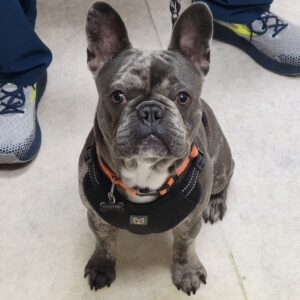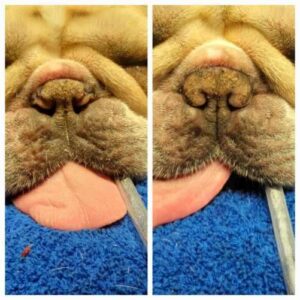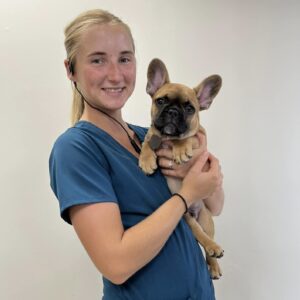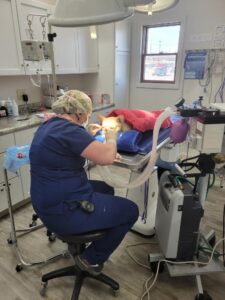Contact Us!
Nostril Reconstruction
Animal Doctor provides nostril reconstruction surgery for brachycephalic breeds. We accept referrals and provide second opinions.
Description: Nostril (nares) reconstruction is a surgical procedure involving resection of a portion of the alar fold. Nasal reconstruction is indicated in the presence of stenotic nares. Stenotic nares are a common characteristic of brachycephalic (short nosed) breeds. Stenotic nares can also be acquired through injury or a previous failed surgery.
Common Breeds: English bulldog, French bulldog, Boston terrier, Pug, Pekingese, Shih tzu, etc.
Symptoms of Stenotic Nares? Snoring, snorting, difficulty breathing, heat or exercise intolerance.



What questions do we ask?
- Does your pet snore while sleeping? Do they lay in odd positions
- Does your pet get tired quickly during exercise/play?
- Does your pet having trouble catching their breath?
What are the steps we take to treat your pet?
A thorough physical examination will be performed to assess conformation of your pets’ nostrils, breathing characteristics and general health. Based on our finding’s treatment options will be discussed.
Animal Doctor Nostril Reconstruction potential treatment plans?
Surgical Therapy
- A nostril reconstruction is performed if your pet has moderate to severely stenotic nares or has sustained an injury damaging the nostrils. Nostril reconstruction can be performed at the time of spay/neuter as a preventative measure or can be performed later in life when abnormalities arise.
What are the risks if nostril reconstruction surgery is not performed?
If your pet has moderate to severely stenotic nares along with other components of brachycephalic obstructive airway syndrome respiratory distress and subsequent failure may occur.
Preventative measures you can take along with nostril reconstruction include; maintaining your pet at an ideal body weight/condition (obesity worsens clinical signs of respiratory compromise), keeping your pet out of a high heat and humidity environment, limiting strenuous activity and prevent too much excitement.
Animal Doctor Provider
Dr. Wacker











